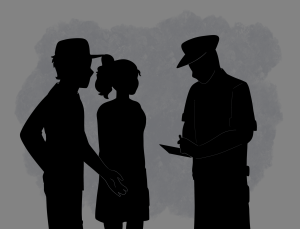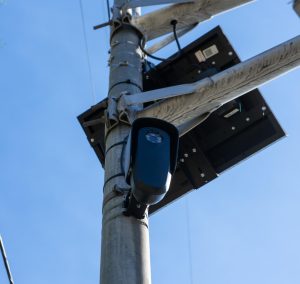The trolley problem and dehumanization
March 10, 2022
We care about politics because we care about people, but if that’s truly the case, then we must change the way we talk about politics. When we talk about ideology and a “humanizing” approach, we completely fail to consider the real ramifications of our actions, no matter how “right” we think we are. There are plenty of abstracted ethical dilemmas that seep their way into each political issue (freedom vs safety, majority rule vs minority right, etc.), but if we can’t honestly talk about what each choice means for real people, or talk to people as if they are real people, we can’t truly care about people.
Consider the trolley problem: A train is on track to run over five people, but you have near you a switch that, if flipped, will divert the train to a second track wherein it will only run over one person. The dilemma becomes “Will you flip the switch?”
The first time I heard this (and for years afterward) I strongly held the belief that the “objectively moral” choice was to kill the one to save the five. The philosophy behind that decision is utilitarianism (which values, in essence, “the greatest good for the greatest number”), and it could still be the “right” choice.
However, this approach overlooks a couple of factors. Say you’re a doctor tasked with treating five people in urgent need of organ transplants, each one requiring a different organ. Then this perfectly healthy individual enters the ER (presumably for like a broken wrist or something), and their blood type is miraculously compatible with all five of the people awaiting transplants.
In this context, will you “flip the switch?”
While each scenario can be judged separately, and “consistency” in answers isn’t mandatory, we should strive to understand why the trolley problem is a dilemma in the first place. In this slightly different scenario, it exaggerates two equally important elements that are easy to miss within the original problem.
The first is that we understand we have no right to take the life of another person—even if they could be used to achieve a greater good. This second scenario humanizes the “one person” in a way the original one doesn’t. A popular (and fictitious) word that comes to mind is “sonder” (“the realization that each random passerby is living a life as vivid and complex as your own”), which, while overused, is a phenomenon revealed in the second variation—“what if I were that person with a broken wrist?”
If we decide to take the utilitarian route here, we would be saying that no one has an inherent right to life as long as they can be used as a means to an end. In other words, utilitarianism necessitates that as long as the “greater good” calls for such sacrifices, the individual does not have a “moral” right to life. What’s more, if in the first scenario the “one person on the tracks” was our parent, and we chose to not flip the switch for that reason, we would still be “letting” five other people die.
The second element is uncovered within the first, and it’s something totally lost in the cost-benefit analysis of this whole thing; the original trolley problem is framed for the explicit aim of dehumanizing the situation. Indeed, the horror of the whole predicament is completely lost on us. Even in our imagination, the first trolley problem is animated, the gore and guts of the moment are mentally edited out. Regardless of the choice we pick, we think we can pick it with a relatively clean conscience, and that is because it is not real.
The second scenario does a slightly better job of showing us the horror and visceral injustice of the choice, but ultimately neither are enough. What I want to draw attention to here is the notion of what exactly it means to recognise the humanity of others. There is a case for this kind of “thought experiment” that is designed to eliminate factors such as humanization and realism in order to highlight a principle, and there is nothing wrong with that on its own. However, in present day politics, it feels like that is how we talk about ideology and governance.
How can we make truly fair decisions, or even honestly face the gravity of the decisions we make, if we remove the sheer humanity from the problem? How can we even understand what the problem of politics means if we fail to imagine the people in it? How can we atone for our political actions in a way that recognizes the pain we have caused?
All of these are essential questions—essential because the way we think about them bleeds into our culture and our social interactions. Politics is about people, and if we fail to recognize the inevitable inhumanity of our actions in politics, we will fail to recognize the same in our interactions with people.






